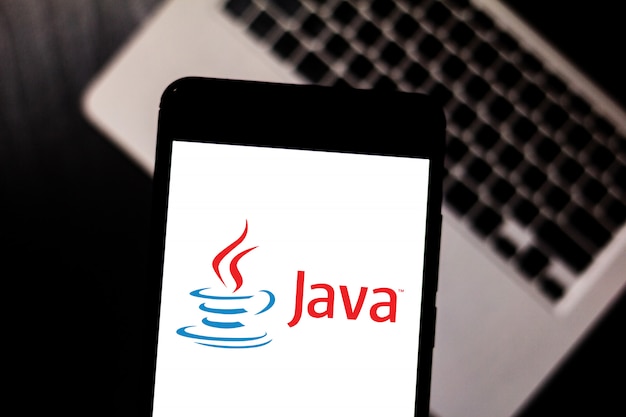In Java, the serialVersionUID is a unique identifier used for version control in serialization. Serialization in Java refers to the process of converting an object’s state into a byte stream, which can then be transferred or stored. However, when an object is deserialized (read from the byte stream), Java needs to ensure that the class definition used to deserialize the object matches the class definition used to serialize it. This is where serialVersionUID plays a crucial role in preventing compatibility issues between different versions of a class.

What Is SerialVersionUID?
The serialVersionUID is a static final field in a class that implements the Serializable interface. It serves as a version identifier for the class during the serialization and deserialization process. If the class definition changes between serialization and deserialization (e.g., the class is modified by adding or removing fields), a mismatch can occur, potentially causing errors. The serialVersionUID helps Java handle this situation by checking whether the class being deserialized matches the version number of the class used during serialization. Having a serialVersionUID ensures that the correct version of the class is used, which is particularly important when working with persistent data across different application versions.
Importance of SerialVersionUID
Using a serialVersionUID is important for maintaining backward compatibility when deserializing objects. Without this unique identifier, any change in the class structure could lead to InvalidClassExceptions. For instance, if you modify a class by adding new fields or changing method signatures, the version of the class used during serialization might not match the modified version. This mismatch can cause unexpected behavior or errors. With serialVersionUID, the JVM can check whether the serialized data is compatible with the current class definition.
How to Define SerialVersionUID
The serialVersionUID is defined as a static final long field in your class. It can be explicitly set to any long value, but it is recommended to use a unique value that follows a specific pattern. For example:
private static final long serialVersionUID = 1L;The serialVersionUID value is used by the JVM to verify that the sender and receiver of a serialized object have compatible versions. If the serialVersionUID in the class definition doesn’t match the version in the serialized data, an error is thrown. You can generate a unique serialVersionUID manually or let the IDE generate it automatically when required.
What Happens If SerialVersionUID Is Not Defined?
If the serialVersionUID is not explicitly defined in a class, Java will calculate one automatically based on the class’s details. However, this approach can lead to unpredictable results if the class structure changes. Java generates the serialVersionUID using the class’s name, fields, methods, and other details. Any modification to the class could cause Java to generate a new serialVersionUID, potentially causing deserialization failures. For this reason, it is best practice to define a serialVersionUID manually to avoid these issues.
Modifying SerialVersionUID
When you modify a class in a way that might impact its serialization (e.g., adding or removing fields), it’s important to update the serialVersionUID. If the class has undergone significant changes that would affect compatibility, the serialVersionUID should be updated to reflect that. However, if the changes are backward compatible, such as adding non-transient fields that don’t affect existing serialized data, you can retain the same serialVersionUID. Keeping track of version changes with serialVersionUID ensures that older serialized objects can still be deserialized successfully.
Benefits of Using SerialVersionUID
- Ensures backward compatibility in serialized data.
- Avoids
InvalidClassExceptionduring deserialization. - Allows explicit control over versioning in classes.
- Improves application stability when evolving class structures.
- Facilitates easier debugging when dealing with serialization errors.
- Provides a clear versioning mechanism for distributed applications.
- Helps in maintaining serialized data integrity across software updates.
Watch Live Sports Now!
Dont miss a single moment of your favorite sports. Tune in to live matches, exclusive coverage, and expert analysis.
Start watching top-tier sports action now!
Watch NowCommon Pitfalls When Using SerialVersionUID
- Failing to update
serialVersionUIDafter modifying the class. - Letting the IDE auto-generate
serialVersionUIDwithout considering future compatibility. - Using the default
serialVersionUIDgenerated by the JVM instead of explicitly defining one. - Not testing deserialization with old serialized objects after class changes.
- Ignoring potential serialization issues when working in a distributed environment.
- Overcomplicating
serialVersionUIDvalues by changing them unnecessarily. - Assuming serialization will work perfectly across all versions without version control.
| Modification | Update serialVersionUID? | Reason |
|---|---|---|
| Adding non-transient fields | No | Doesn’t affect compatibility with previous versions. |
| Changing method signatures | Yes | Can affect how objects are serialized and deserialized. |
| Removing fields | Yes | Can cause errors when deserializing objects that expect the missing fields. |
Using `serialVersionUID` is crucial for maintaining the integrity of serialized objects in Java, especially as your application evolves over time. By defining it explicitly, you ensure that your objects are deserialized correctly, regardless of class modifications.
In summary, the serialVersionUID is an essential feature for any Java developer working with serialization. It ensures that the JVM can correctly identify class versions during the deserialization process, preventing errors caused by mismatched class definitions. Whether you’re working with legacy systems, updating application versions, or handling distributed applications, managing serialVersionUID properly is crucial. If you haven’t already, start defining the serialVersionUID in your classes today and avoid future headaches when it comes to serialization. Share this article with your colleagues to help them better understand the importance of versioning in Java serialization!